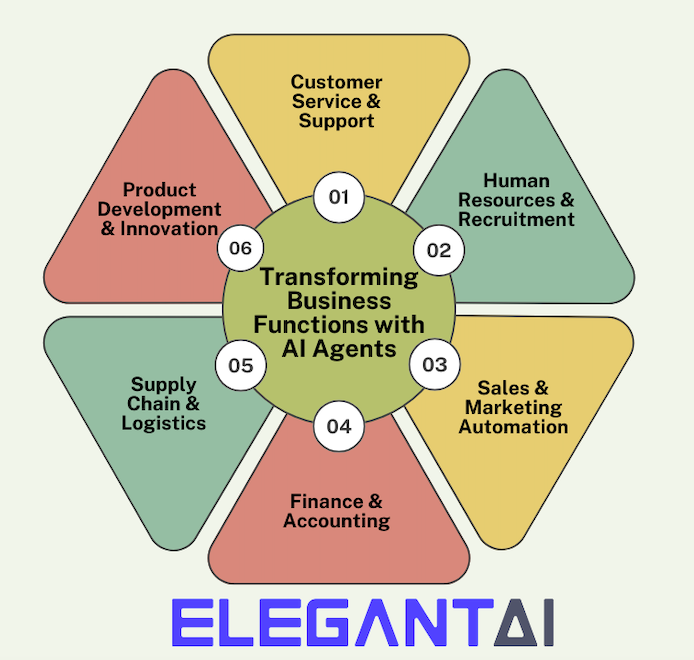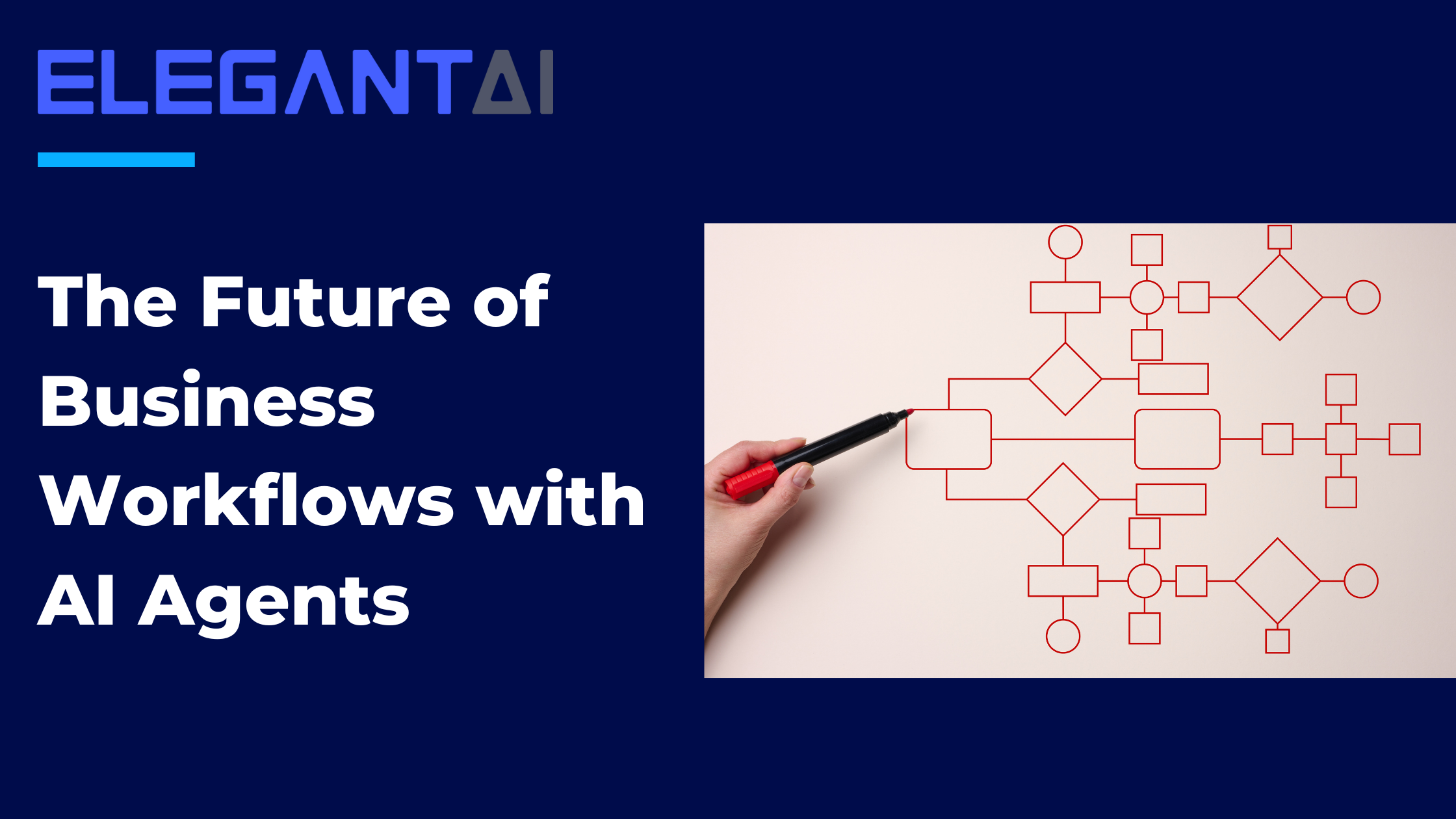In the wake of the rise of AI Agents – independent artificial intelligence powered programmes capable of learning, adapting, and making decisions— traditional robotic process automation (RPA) has evolved, transforming workflows into dynamic and streamlined intelligent systems.
In this blog post, we will explore The Future of Business Workflows with AI Agents, their impact on various industries, and the key trends to watch out for.
Key Tasks of AI Agents in Business Workflows
- Automation of Repetitive Tasks – In order to free up the valuable time of employees for high-output work, AI Agents can be tasked with handing data entry, scheduling, and other administrative duties,
- Supporting Smart Business Decision Making – AI Agents and Virtual Assistants are always active so they can analyse vast amounts of business data in order to generate insights, forecasts, and recommendations that are critical in sound business decision making.
- Providing Superior Customer Service – Using Natural Language Processing (NLP) technology AI Agents can process and understand human language, enabling efficient communication and an automated customer service experience that drives success. AI chatbots handle initial inquiries while seamlessly transferring complex issues to human representatives.
- Operational Analytics – AI Agents can process existing customer behaviour in order to anticipate future trends. This can help business owners to get ahead and stay ahead – driving retention as well.
- Learning for the Future – One key aspect of AI agents is their ability to learn from past experiences and improve over time, becoming more efficient and accurate in executing tasks.
AI agents can analyse data, make predictions, interact with humans, and even collaborate with other AI systems to execute complex tasks. Unlike traditional automation that reacts to inputs, AI Agents can predict issues before they occur.

Future Trends in AI-Powered Business Workflows
- Hyper-Personalisation – Business owners can rely on AI Agents to provide detailed insights into the live behaviours of users, so sales and marketing efforts can be extremely personalised and tailored for profitable interactions.
- Autonomous Decentralised AI Workflows – In the near future it will be normal for multiple AI Agents to work together and execute tasks independently, without human intervention. This will in turn enhance business efficiency, minimise human error and accelerate business strategy.
- An AI Agent as a Co-Worker – Digital co-workers in the guise of AI Agents are already in play, however in the future their involvement will be more integral, helping human team members to analyse data, automate routine tasks and supply the required and relevant insights for better decision-making.
- AI – Driven Compliance and Risk Management – In order to continuously adhere to industry standards and legal frameworks, AI Agents will always monitor and analyse business performance in real time, underlining regulatory compliance and risk management.
From automating mundane tasks to providing strategic insights, AI-driven solutions are reshaping how businesses operate, enhancing efficiency, and driving growth and improving competitiveness.

Challenges and Considerations of AI Agents
Conclusion
As organisations strive for greater efficiency, productivity, and innovation, the future of business workflows is undeniably AI-driven. As AI technology continues to evolve, businesses must stay ahead of the curve to thrive in an increasingly AI-powered world. AI agents are set to enhance efficiency, optimise decision-making, and drive innovation across various industries. Businesses that embrace AI-powered workflows will gain a competitive advantage.
Elegant AI
As Australia’s leading AI Consultancy company, Elegant AI, is dedicated to creating cutting-edge solutions that empower businesses and individuals with new possibilities for Human-AI collaboration. With a team of seasoned AI experts, we specialise in developing custom AI applications, AI Agents, AI Chatbots and AI powered tools that drive innovation and accelerate digital transformation.


Leave a Reply